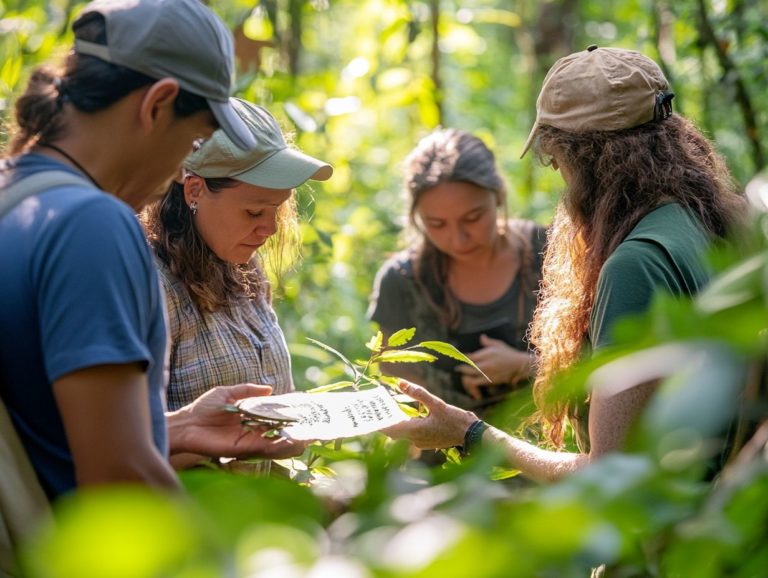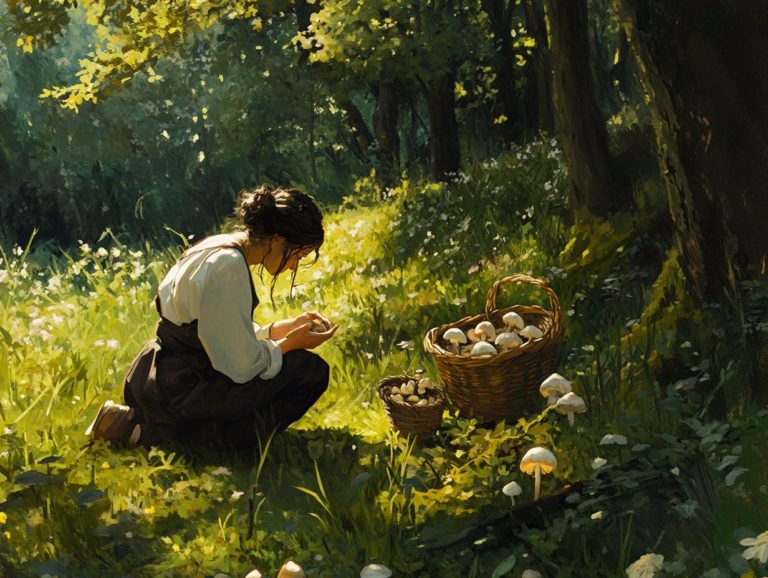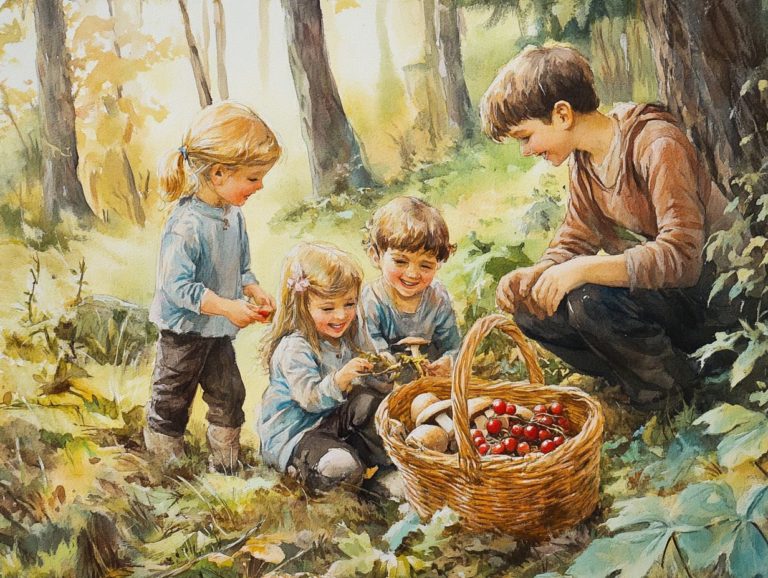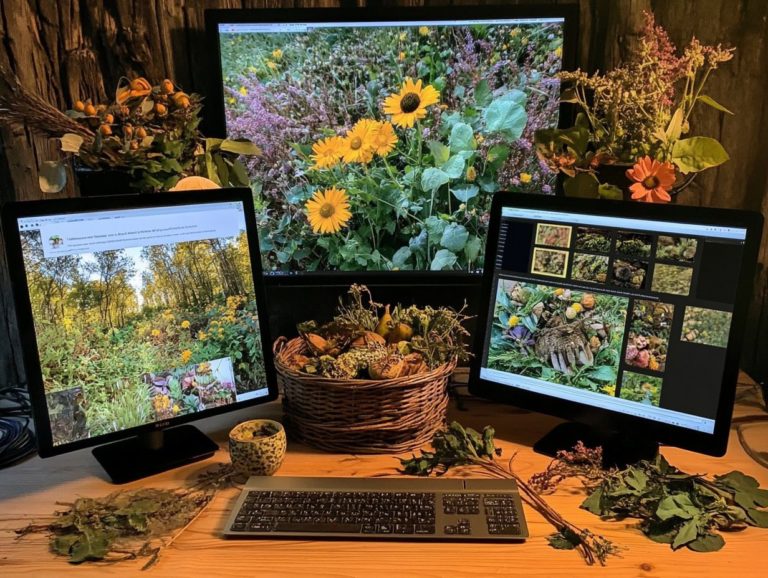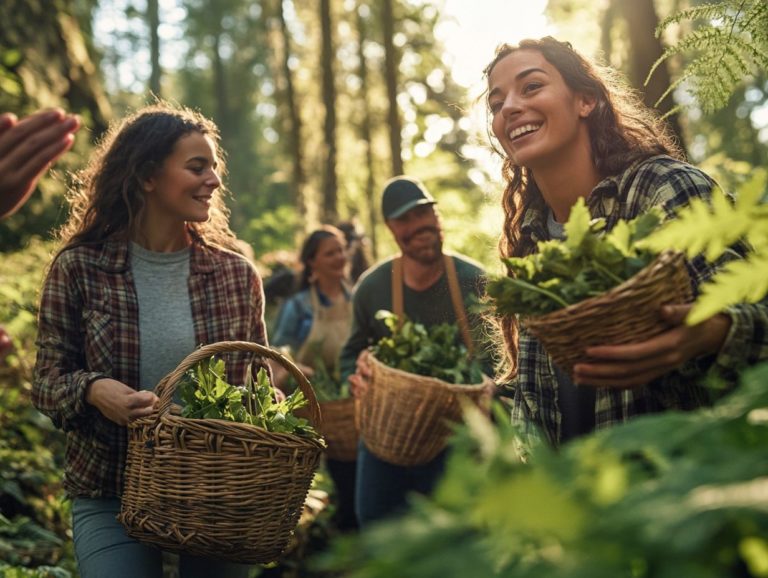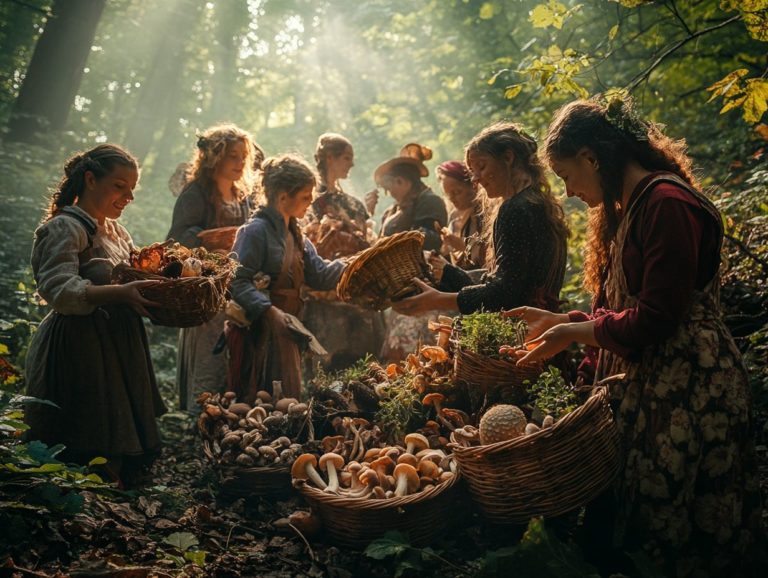How to Use Social Media for Foraging Tips
Foraging has gained immense popularity as you seek a deeper connection with nature and a sustainable source of food. With the rise of social media, you have access to a treasure trove of information and community support that can significantly enrich your foraging experiences.
Let s explore how social media can be your best friend in foraging! This discussion highlights essential precautions to ensure your foraging practices remain safe.
Embark on this journey as you explore the vibrant world of foraging through the lens of social media!
Contents
- Key Takeaways:
- Benefits of Using Social Media for Foraging
- How to Find Reliable Foraging Information on Social Media
- Tips for Engaging with Foraging Communities on Social Media
- Precautions to Take When Foraging Using Social Media and Engaging with Online Communities
- Frequently Asked Questions
- What is social media and how can it help with foraging tips?
- Which social media platforms are best for finding foraging tips?
- How can I use social media to connect with other foragers?
- Is it safe to trust foraging tips found on social media?
- Are there any specific accounts or pages on social media that focus on foraging tips?
- Can social media be used to find foraging events or workshops?
Key Takeaways:
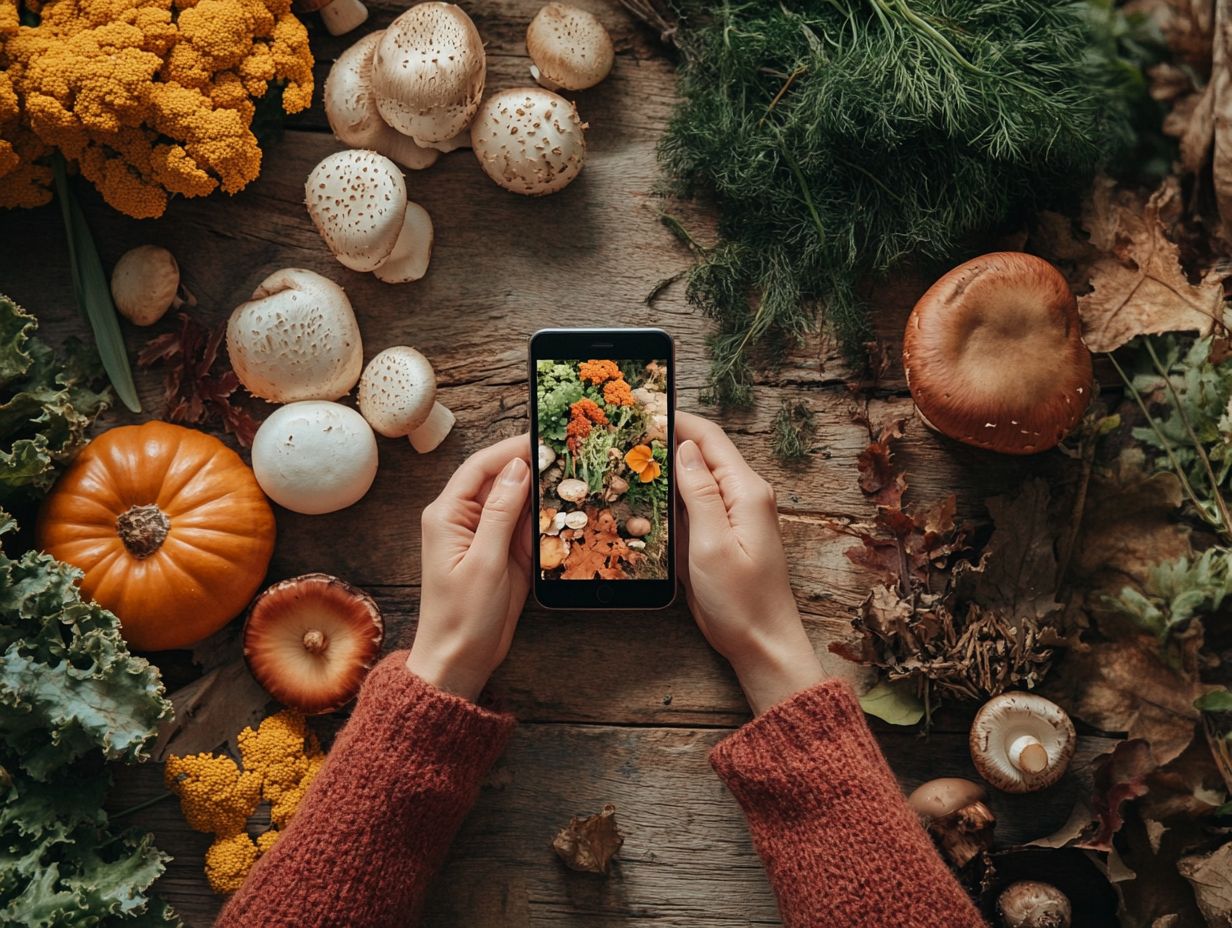
- Follow reliable sources on social media to learn valuable foraging tips from experts.
- Utilize the power of community support and networking on social media platforms to enhance your foraging experience.
- Stay safe while foraging by taking necessary precautions and verifying information from credible sources shared on social media.
What is Foraging and Why is it Popular?
Foraging is the art of searching for and gathering wild edibles, which are plants you can eat that grow in nature. This practice has surged in popularity lately, thanks to a growing interest in sustainable food and caring for the environment.
As you become more conscious of where your food comes from and its ecological impact, foraging becomes a way to reconnect with nature and explore the great outdoors. This revival is driven by a vibrant online community that shares insights and experiences related to wild food and foraging practices.
This digital platform allows you to exchange tips and recipes and cultivates a deeper appreciation for the intricate ecosystems that support various edible plants and fungi. Many are discovering that foraging can elevate culinary experiences, offering unique flavors that often elude store-bought produce.
This movement aligns beautifully with rising food culture trends, where transparency in food origins is increasingly valued, and minimizing carbon footprints is a priority. In the end, foraging gives you the power to take control of your food sources while positively contributing to nature conservation efforts.
As your awareness of local ecosystems grows, so does your commitment to protecting them.
Benefits of Using Social Media for Foraging
Social media platforms like Facebook, Instagram, and TikTok have transformed the way foragers share their experiences and wisdom. They offer a wealth of expert tips, including insights from the top foraging blogs to follow, and community support that enriches your foraging journey.
By leveraging these platforms, you can effortlessly connect with fellow enthusiasts, discover local foods, and delve into the numerous benefits of gathering wild food in your area.
Access to Expert Tips and Information
Accessing expert tips and information on foraging has never been easier for you, thanks to social media platforms that link you with experienced foragers and resources focused on successful foraging techniques and ethical food harvesting practices.
This wealth of knowledge gives you the power, whether you’re a novice or a seasoned forager, to make informed food choices and grasp the nuances of food harvesting ethics. Online foraging communities are invaluable hubs for you to share experiences, explore detailed guides, and foster collaboration with fellow members.
Many platforms showcase experts who offer insights not just on the safe identification of various mushrooms but also on sustainable harvesting methods that protect the environment. Through engaging discussions, tutorials, and interactive content, these communities instill a sense of responsibility in you, encouraging a respectful approach toward nature and its ecosystems.
As you engage more with these groups, the collective wisdom grows, creating a supportive network where ethical practices and knowledge truly thrive.
Community Support and Networking
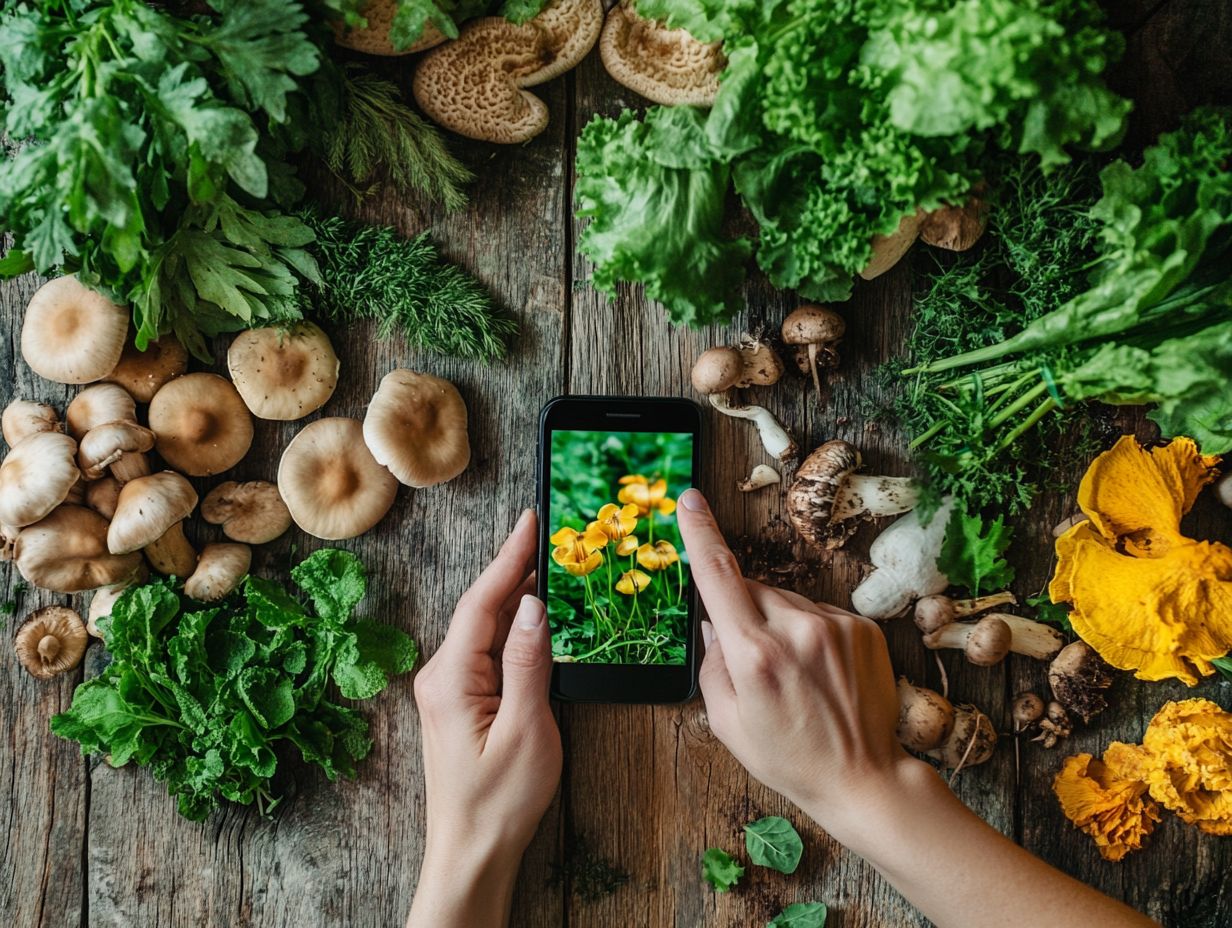
The sense of community among foragers on social media is invaluable. It allows you to share your foraging experiences, connect with others who appreciate the nuances of food culture, and explore nature together. This support network enriches your foraging journey and encourages newcomers to engage.
On these platforms, you can document your adventures, swap tips on identifying wild edibles, and gain insights into sustainable practices. Networking opportunities abound as enthusiasts from diverse backgrounds create a vibrant tapestry of knowledge and skill-sharing.
Collaborative foraging events often spring up, inviting participants to team up and search for seasonal ingredients. This deepens friendships while forging meaningful connections. This sense of belonging boosts your confidence and ignites a shared passion for local ecosystems and their culinary potential, making the foraging community stronger.
How to Find Reliable Foraging Information on Social Media
Finding trustworthy foraging information on social media is vital, especially given the overwhelming volume of posts that can be misleading. You need to learn how to identify credible sources and verify the information circulating online.
By cultivating these skills, you can remain well-informed, enabling you to make safe and ethical decisions based on accurate data.
Identifying Credible Sources
To find credible sources in foraging on social media, look closely. Seek out profiles that consistently deliver accurate, well-researched information while fostering respectful discussions. Recognizing these trustworthy voices is essential for your food education and ethical foraging practices.
One effective method to evaluate qualifications is to explore their educational background and experience in botany, ecology, or related fields. Pay attention to the number of followers and engagement levels; profiles that encourage discussion and readily answer questions often reflect a commitment to sharing reliable knowledge.
Review the content they share, focusing on citations and the presence of research verified by experts. Ensure the information aligns with reputable sources and note how long the account has been active. These measures help you distinguish genuine expertise from mere opinion.
Verifying Information
It’s crucial to verify foraging information to avoid risks associated with misinformation, especially regarding environmental concerns and the impacts of wild edibles on food safety. Always cross-check facts with reputable sources and consult expert opinions when uncertainty arises. This diligence ensures responsible foraging practices and fosters ecological awareness.
Look into established field guides, trusted websites dedicated to botany, or local wildlife organizations that emphasize sustainability. Engaging in community groups can provide you with valuable insights and allow you to share experiences with like-minded individuals. Collaborating with trained foraging experts or attending workshops can enhance your understanding of delicate ecosystems.
By cultivating a habit of thorough verification, you minimize health risks and contribute positively to the environment. This practice helps you truly appreciate the ecological balance that wild edibles support.
Tips for Engaging with Foraging Communities on Social Media
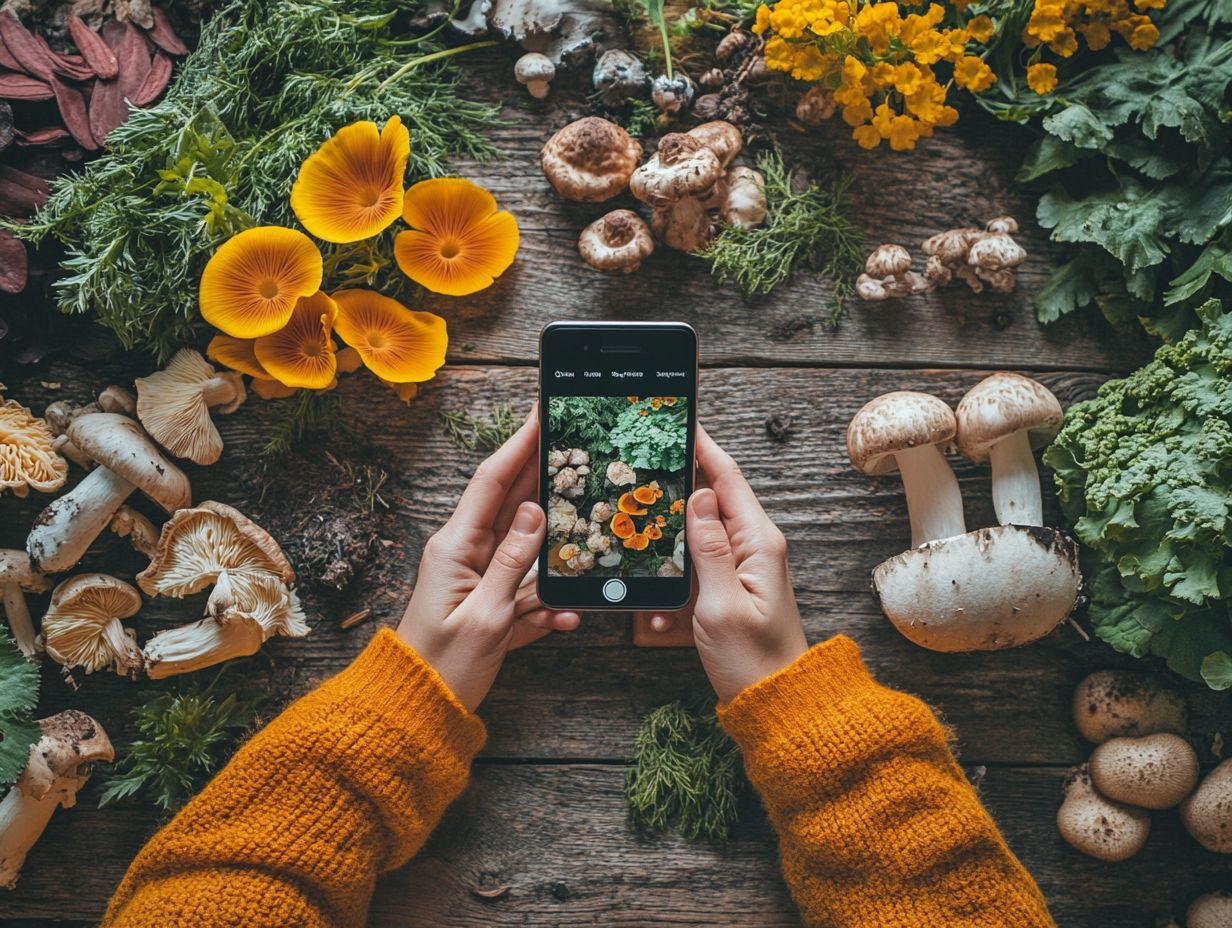
Engaging with foraging communities on social media requires understanding online etiquette and a genuine appreciation for food culture. By fostering positive interactions, you help create a welcome environment for both newcomers and seasoned foragers.
By communicating with respect and sharing valuable insights, you enrich your own foraging experiences and contribute to the collective knowledge of the community.
Best Practices for Sharing and Engaging
Using good strategies for sharing and engaging within foraging communities on social media greatly elevate the quality of your interactions and overall experience. This approach fosters a culture of collaboration and learning.
By sharing your personal foraging experiences and insights in a constructive manner, you can strengthen community bonds and promote ethical foraging practices.
Creating an environment where people can easily give feedback and support one another is essential. This not only helps refine your skills but also encourages the sharing of knowledge that can benefit the entire community.
By sharing success stories, sustainable foraging tips, or the challenges you’ve encountered during your outings, you can ignite meaningful conversations. Recognizing and respecting the varying levels of experience among members enhances inclusivity and broadens the community’s collective wisdom, transforming it into an enriching space for all enthusiasts.
Precautions to Take When Foraging Using Social Media and Engaging with Online Communities
While social media can greatly enrich your foraging experience, it’s essential to take necessary precautions to ensure both safety and sustainability as you explore the great outdoors.
Understanding safety measures is essential. Staying vigilant about environmental concerns can help you sidestep potential dangers. By being mindful of these precautions, you can fully enjoy your adventures without jeopardizing your well-being or the delicate ecosystems you engage with.
Implementing safety measures while foraging is essential for your protection and that of the environment. You should always be aware of your surroundings, steer clear of potentially harmful species, and respect local regulations concerning food harvesting to promote ethical foraging practices.
Understanding the specific ecosystems where you forage is vital for maintaining the delicate harmony of local wildlife. Familiarizing yourself with local regulations is key, as these laws often outline what can be harvested and from where, preventing overharvesting that could harm sensitive habitats.
Mindful harvesting techniques are crucial; take only what you need and leave enough for future growth. This approach fosters a respectful relationship with nature. Staying informed about any endangered species in the area can help you avoid unintentional harm to vulnerable flora and fauna, ensuring a safe and responsible foraging experience.
Frequently Asked Questions
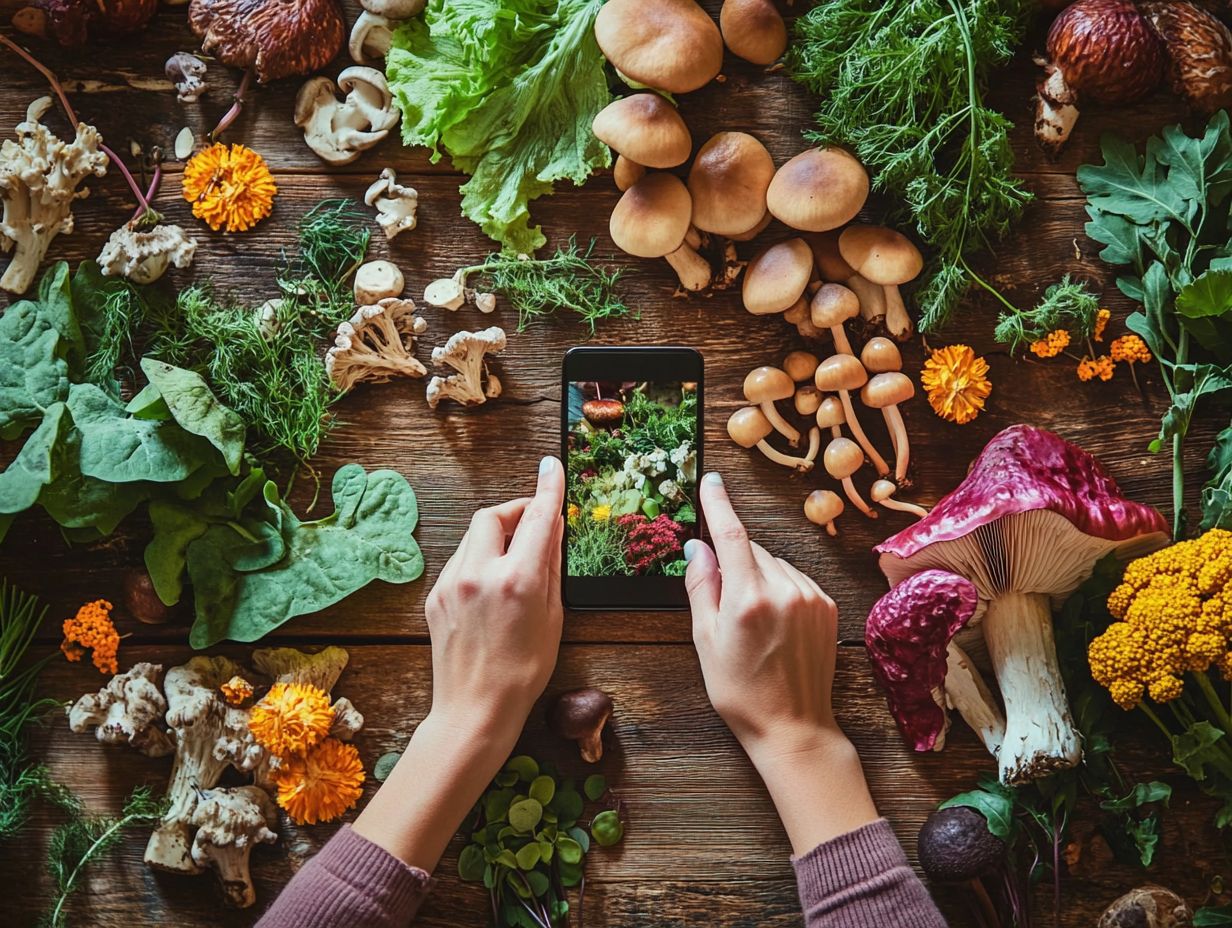
Social media is a platform for people to connect and share information online. It can be a useful tool for foragers to discover new tips and techniques, as well as connect with other foragers in their community.
There are a variety of social media platforms that can be helpful for foraging tips, such as Instagram, Facebook, and Twitter. Each platform has its own unique features and communities, so it’s best to explore and see which one works best for you. Additionally, utilizing foraging apps can enhance your experience and provide you with valuable techniques for success.
You can use hashtags and join specific groups or communities dedicated to foraging on social media platforms. This will allow you to connect with others who share your interest and exchange tips and information.
While social media can be a great resource for foraging tips, it’s important to do your own research and verify the information before trying it. For those interested in gathering with others, consider checking out these tips for starting your own foraging group. Always double-check with reliable sources and use caution when trying new tips.
Yes, there are many accounts and pages on social media dedicated to foraging tips and techniques. Some popular ones include @foragingtips on Instagram and the Facebook group “Foraging and Wildcrafting Community.”
Looking to explore the world of wild food? Social media is your go-to tool!
Many foragers are people who gather wild food from nature and use social media to advertise their workshops. You can also join local foraging groups to stay updated on future events in your area.

